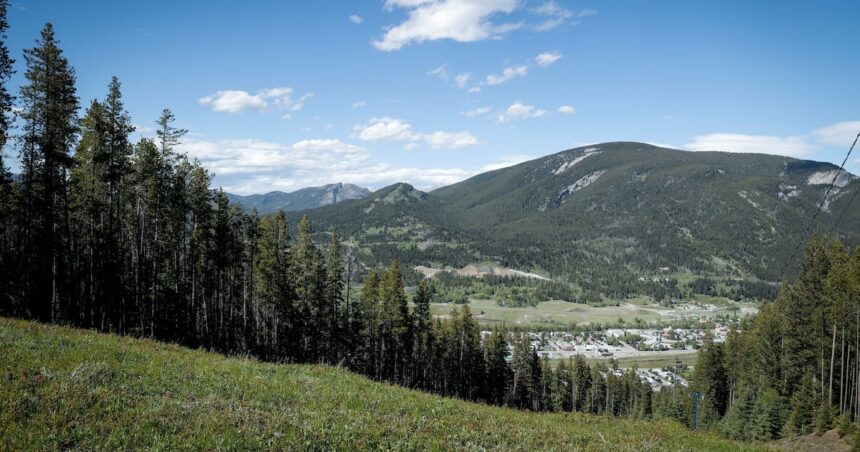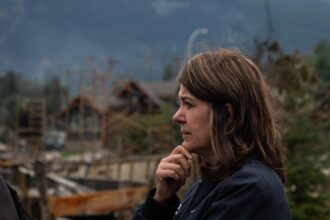The controversial Grassy Mountain coal mining project has received federal approval, sparking renewed debate over resource development in Alberta’s eastern slopes. Premier Danielle Smith wasted no time celebrating the decision, calling it a testament to her government’s “different attitude about mining” compared to previous administrations.
“This represents a significant economic opportunity for Alberta,” Smith declared during her weekly radio address on Saturday. “The project will create approximately 400 jobs during construction and another 400 permanent positions once operational, bringing much-needed economic activity to communities still recovering from downturns in other resource sectors.”
The Grassy Mountain project, proposed by Australian-based Riversdale Resources, aims to extract metallurgical coal—used in steel production—from a site north of Blairmore in the Crowsnest Pass region. The federal approval comes after years of regulatory scrutiny and follows a provincial environmental assessment that identified both potential benefits and concerns.
Environmental groups have expressed alarm over the approval, citing potential impacts on water quality in the Oldman River watershed and habitat disruption for threatened species like the westslope cutthroat trout. The Alberta Wilderness Association pointed to scientific studies suggesting mining operations could release selenium and other contaminants into waterways that supply drinking water to downstream communities.
“We understand there are environmental considerations,” acknowledged Smith. “That’s why this project will adhere to the strictest environmental standards in North America, with comprehensive monitoring systems and reclamation requirements that exceed regulatory minimums.”
The premier emphasized the economic benefits extend beyond direct employment. According to provincial economic analysis, the project could generate up to $1.7 billion in provincial revenue over its 25-year lifespan through royalties and taxes, while creating opportunities for local businesses supplying goods and services to the mine.
Indigenous perspectives on the project remain divided. The Piikani Nation has expressed support, citing economic development opportunities, while the Kainai Nation (Blood Tribe) has raised concerns about potential impacts on traditional territories and water resources.
Federal Environment Minister Steven Guilbeault confirmed the approval came with 35 legally binding conditions addressing water quality, wildlife protection, and consultation with Indigenous communities. “These conditions aren’t suggestions—they’re requirements that must be met for the project to proceed,” Guilbeault stated.
The approval marks a significant shift from 2021, when a joint federal-provincial review panel initially rejected the proposal. Smith credited her government’s more “collaborative approach” with regulators and stakeholders for addressing previous concerns.
Coal mining in Alberta’s eastern slopes has been contentious since 2020, when the previous UCP government under Jason Kenney attempted to rescind a 1976 policy limiting coal development in environmentally sensitive regions. That decision was reversed after significant public backlash.
As Alberta positions itself as a reliable supplier of critical minerals and resources, the question remains: can the province balance economic development with environmental protection in a way that satisfies both industry advocates and conservation groups? The Grassy Mountain project may well become the test case for this delicate balancing act.










